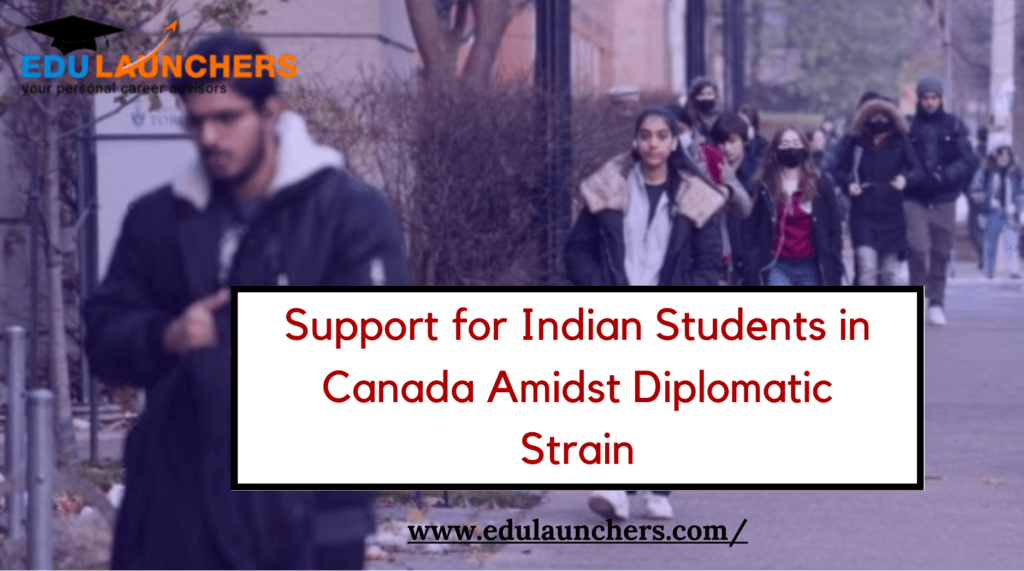In recent times, diplomatic relations between India and Canada have taken a turbulent turn. The controversy surrounding the murder investigation of Khalistan leader Hardeep Nijjar has intensified the discord. Through the input of American intelligence, the Canadian government claims to have substantial evidence pointing to the involvement of the Indian government in Nijjar’s murder on the night of June 19 in Canada. However, India denies any role in the incident, leading to heightened tensions between the two nations.
These escalating tensions have cast a shadow of uncertainty over the safety and well-being of Indian nationals residing in Canada, particularly students pursuing their academic dreams. In light of this, we aim to provide guidance to Indian students facing the challenges brought on by the strained relations between India and Canada.
The Impact of Strained Relations:
The tensions between the two nations have been evident since the G20 Summit organized in India. Modi and Trudeau met in a formal capacity, with not much warmth between the two. The strained relationship between India and Canada holds the potential to inflict damage on both nations. In response to murder allegations made by Canadian President Justin Trudeau against India, the Indian government temporarily halted the issuance of Canadian visas, citing a ‘technical glitch.’ People also staged protests against the Canadian President at the Jantar Mantar in New Delhi, India.
On the other hand, a report by Invest India suggests that Canada is the 18th largest investor in India. And for Canada, India is its ninth largest trade partner (2022 data). Not only this, numerous Canadian businesses are established in India, while thousands of other Canadian businesses are looking for investment opportunities in India, a report by Invest India stated. If the relationship deteriorates further, it could lead to substantial financial and commercial losses for both nations.
Over the years, Canada has emerged as one of the most sought-after destinations for Indian students pursuing higher education abroad due to its affordability and welcoming atmosphere. In the past year, more than 225,000 Indian students obtained Canadian study visas, making Canada the second most popular destination for Indian students after the United States. Impressively, over 34% of international students in Canada have Indian roots. The Canadian economy heavily relies on revenue generated from international students, contributing 5.21% to the nation’s overall GDP. Moreover, international students inject a staggering $30 billion into the Canadian economy annually.
Beyond the economic impact, Indian students play a significant role in fostering cultural exchanges and strengthening people-to-people ties between India and Canada. These connections extend far beyond financial contributions, highlighting the importance of maintaining amicable relations between the two nations.
As international relationships face strains, a noticeable trend has emerged among students from India and other nations – a reluctance to pursue education in Canada. As the upcoming summer session of 2024 approaches, experts anticipate a potential decline in the average number of admissions, with students receiving advice to defer their plans for the Canadian summer intake.
The challenges, however, extend beyond those yet to embark on their educational journeys. Indian students already pursuing their studies in Canada now find themselves navigating complex terrain. And seeking help amidst the evolving international dynamics can be a daunting task. Recognizing the concerns of its citizens studying abroad, the government of India is actively engaged in efforts to safeguard the interests and well-being of its overseas students.
Assurances from the Indian Government:
The ongoing political discord between the two nations has understandably raised concerns among Indian families who have sent their children to Canada for education. To ensure the safety of their wards, the Indian government has urged all Indian citizens in Canada to register with ‘consular Services’ at the High Commission of India in Ottawa.
Under the consular services, the Indian government has developed the Indian Community Welfare Fund, which facilitates Indians through medical services, emergency evacuation, and legal aid overseas. Additionally, students can also register with the Consulate General of India in Vancouver and Toronto for added support. The Indian government has established a web portal called ‘Madad’ (madad.gov.in) to facilitate communication and assistance for Indian nationals abroad.
University Support Facilities for International Students:
Indian students in Canada can take advantage of university support facilities tailored to international students. These support desks offer guidance and assistance with various aspects of student life, including visa issues, cultural adjustments, and academic concerns.
Government Advisory:
In response to the escalating tensions, the Indian government has issued an advisory for Indians living in Canada to exercise caution and consider traveling only when necessary. Staying updated on such advisories is essential to ensuring personal safety.
Conclusion:
In conclusion, while the diplomatic tensions between India and Canada present challenges for Indian students studying in Canada, various measures and support systems are in place to ensure their safety and well-being. Ultimately, both India and Canada stand to benefit from maintaining a harmonious and mutually beneficial relationship.





